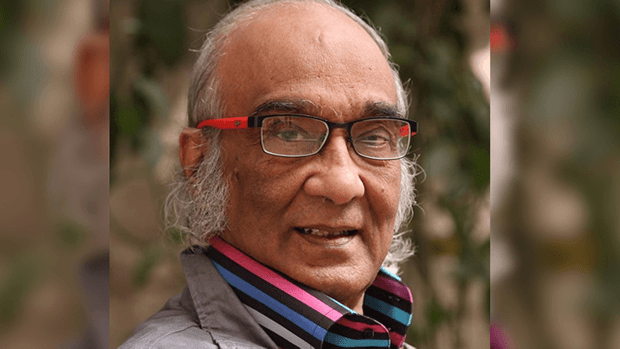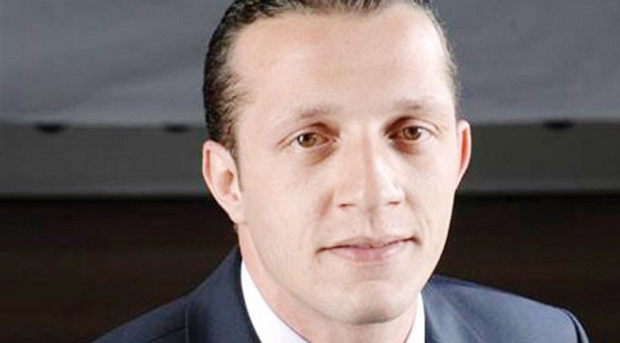10 Aug 2016 | Bangladesh, Campaigns, Campaigns -- Featured, Statements

Shafik Rehman (Photo: Reprieve)
Anisul Huq
Minister for Law, Justice and Parliamentary Affairs
Government of Bangladesh
Bangladesh Secretariat, Building No. 4 (7th Floor) Dhaka-100
4 August 2016
Dear Mr Huq,
We are writing to you as international press freedom, freedom of expression and media advocacy groups about the ongoing detention of Shafik Rehman, an elderly journalist in custody in Dhaka, to set out several serious concerns about his treatment.
We were pleased to note that on Sunday 17 July 2016 the Supreme Court granted Mr Rehman’s request for leave to appeal his detention.
Detention without charge
Mr Rehman was arrested on 16 April 2016 and denied bail by the High Court on 7 June 2016. After more than three months in detention, he has still not been charged with any crime.
He is being investigated by the Bangladesh Detective Branch, who entered his house without a warrant, inexplicably posing as a camera crew, on the day of his arrest.
The detectives missed a deadline on 16 June 2016 to submit a report to Metropolitan Magistrate SM Masud Zaman in Dhaka outlining the alleged case against Mr Rehman. The court extended the deadline until 26 July 2016, despite the fact that the First Information Report in this case was initially filed in August 2015 and the investigation period in the case has expired. On 26 July 2016, the police once again missed the deadline to submit their investigation report and a further deadline has now been set for 30 August 2016 – more than 100 days after his arrest.
Under international law, the Bangladesh authorities have a duty to promptly inform Mr Rehman of the nature of the case against him and either charge or release him. The delays in this case suggest that there is no evidence against Mr Rehman, and that he should be released.
Journalistic career
Mr Rehman is a professional journalist who has spent a lifetime working for freedom of expression. We are concerned that his arrest represents an attack on press freedoms and forms part of a worrying trend in Bangladesh. At the time of his arrest, Mr Rehman was editor of the popular monthly magazine Mouchake Dhil, with experience as a TV host and producer. Previously, he has worked for the BBC and edited Jai Jai Din, a mass- circulation Bengali daily.
The arrest of journalists like Mr Rehman raises concerns about the state of press freedoms in Bangladesh, where several prominent editors have been arrested in recent years.
Denied bail
Mr Rehman is an elderly man in poor health. He spent the first weeks of detention in solitary confinement, without a bed. His health deteriorated and he was rushed to hospital.
His family are seriously concerned about his health failing in prison, and he has missed important medical appointments while on remand.
There are therefore strong compassionate grounds for releasing Mr Rehman on bail, while any evidence (if there is any at all) can be gathered without jeopardising his health.
We hope that Mr Rehman’s appeal will be an opportunity for the Court to take stock of the serious concerns about the case against Mr Rehman and about his health and well-being while he remains in custody.
We appreciate you hearing our concerns and are grateful for swift action to guarantee Mr Rehman’s prompt release.
Yours sincerely,
Reprieve | Index on Censorship | International Federation of Journalists | Reporters Without Borders | Adil Soz – International Foundation for Protection of Freedom of Speech | Afghanistan Journalists Center | Americans for Democracy and Human Rights in Bahrain | Bahrain Center for Human Rights | Canadian Journalists for Free Expression | Center for Media Freedom and Responsibility | Foro de Periodismo Argentino | Free Media Movement | Independent Journalism Center – Moldova | Institute for the Studies on Free Flow of Information | International Press Institute | Media, Entertainment and Arts Alliance | Media Foundation for West Africa | National Union of Somali Journalists | Norwegian PEN | Pacific Freedom Forum | Pacific Islands News Association | Pakistan Press Foundation | Palestinian Center for Development and Media Freedoms – MADA | PEN American Center | Public Association “Journalists” | Vigilance pour la Démocratie et l’État Civique
Via post to:
High Commission for the People’s Republic of Bangladesh
28 Queen’s Gate
London
SW7 5JA
1 Aug 2016 | Europe and Central Asia, Mapping Media Freedom, mobile, News and features, Turkey, Turkey Uncensored

Turkish journalist Lale Kemal
It was a long Saturday night for all of us, at home and abroad, monitoring the worrisome developments around media freedom in Turkey. As if to confirm our fears, the night ended with the detention of six more journalists.
Defence lawyers expected the cases to be handled first thing Monday 1 August. But in a hasty move, journalists who wrote for the opinion section of Zaman — which stands at the epicentre of accusations of being part of the so-called “media leg of FETO terror organisation” — were taken to the Istanbul courthouse. After a long process, all were sent to jail.
The ruling, written under the extraordinary circumstances of emergency rule, reads like a severe restriction of the free word in particular and journalism in general.
The motivation for detention went, in a nutshell, that the six “prevented the investigation on the armed structure in their columns and via social media, and continued to write their columns even after the chief editor of Zaman daily, Ekrem Dumanlı, had fled the country”. Sigh.
There was no other mention than their expressed views — without going into any specifics in their content — and it was seen as sufficient by the judge to rule for jailing. Theirs will add to the pile of complaints from Turkey at the European Court of Human Rights.
It was the case of Şahin Alpay in particular which raised concerns among his colleagues in media and academia. One of the top liberal voices in Turkey, and known with respect among others in German social democrat, liberal and green political circles, Alpay is utterly frail with several health issues. The hopes of a release — albeit conditional — were high but crashed.
Yesterday, his family tried to contact him in prison, uncertain of any success.
All the six are from Turkish media’s liberal end of the spectrum. Among them are two female reporters that require attention. Lale Kemal, who was a commentator with Zaman, is an expert journalist on defence issues, with a long career. Her CV begins with Anatolian Agency, going on with Cumhuriyet daily, Hürriyet Daily News, Taraf and Today’s Zaman. She has been a stringer for Jane’s Defence Weekly for a long time.
The other, Nuriye Akman, has been a professional for 25 years. She worked with “mainstream” dailies in the 1990s and marked her reputation with long, Oriana Fallaci-style interviews both in print and TV. She is also the author of three novels.
Both women have been known to earn their keep only through journalism, like the others in this group of detainees.
Ali Bulaç, with a background as a theologue, is an independent voice within the conservative segments, often with disagreements and polemics with some others in the group. Ahmet Turan Alkan is regarded as a senior voice as part of the centre-right liberal flank in Turkey, popular for his ironic style. And Mustafa Ünal, who was Ankara Bureau Chief of Zaman, was for long active in Ankara, covering major political issues with a minimalist, simple writing style.
According to the regular monitoring done in daily basis by Platform for Independent Journalism (P24), these latest detentions mean that since the bloody coup attempt on July 15, 29 journalists are detained. In a total, there are now 62 journalists in jail in Turkey.
During the long, dark hours on Sunday, there was another message that added to the fears. A colleague, Ali Aslan, based in Washington DC, tweeted that the police had detained the wife of a journalist Bülent Korucu, former editor in chief of the weekly news magazine Aksiyon, now under arrest warrant but on the run. The police, Aslan claimed, threatened to keep her locked until her husband surrenders. Korucu’s son also confirmed this claim.
Dark Sunday indeed.
What fuels the concerns is that there is so far no assurance from the government about the respect for media freedom and whether or not the witch hunt will end anytime soon.
A version of this article originally appeared at Suddeutsche Zeitung. It is posted here with the permission of the author.

Turkey Uncensored is an Index on Censorship project to publish a series of articles from censored Turkish writers, artists and translators.
29 Jul 2016 | mobile, News and features, Turkey, Turkey Uncensored

Arda Akin (Hürriyet)
The latest journalist arrested in Turkey is Arda Akın, a young reporter with the Hürriyet daily, part of the “mainstream” Doğan Media Group. Arda was in the “first” arrest list, issued on Monday, which mainly consisted of investigative reporters. In May, he was among those who won the European Union Investigative Journalism Award 2016, a prestigious prize delivered every year in six Balkan countries and Turkey. In his award-winning article, Akın told of corruption related to ruling Justice and Development Party figures.
Akın now joins 40 journalists taken into custody since the night of the bloody 15 July coup attempt. The arrests, in particular well-known veteran journalists such as Nazlı Ilıcak and Prof Şahin Alpay, adds to the profound concerns for press freedom in Turkey, where emergency rule gives the authorities power to extend arrest periods up to 30 days.
Former Swedish foreign minister Carl Bildt, who has known Alpay for many years, tweeted on Wednesday:
Meanwhile, a series of sanctions launched by the government ratchets up the worries to new levels. In an emergency decree, a large number of media outlets were shut down; their assets are to be expropriated by the government.
It’s a long list, encompassing 45 newspapers, 16 TV channels, 15 radio stations, three news agencies, 15 periodicals and 29 publishing houses. Some of these outlets were raided and allowed to continue under a trusteeship regime, but it seems apparent that they will be discontinued, with a large number of journalists joining the unemployed. In this context, we are witnessing the ruin of the Turkish media. Emergency rule means massive self-censorship within the existing conglomerate media with a block on critical reporting.
The mass closure targets those outlets allegedly affiliated with the Gülenists. But two questions arise immediately …
Why does the government not completely focus on the culprits who were part of the coup attempt and instead give priority to targeting journalists? We all know that, as long as it is not preaching violence or becoming part of it, journalism is not a crime. If there are journalists who are actively involved in plotting and execution of a coup — a very serious crime — they should, of course, be put on trial. Silencing a large bulk of the media simply places a frosted glass on this aspect, awakening fears that the other segments of the media — for example the Kurdish press — could be next.
Second, with less room for reporting and analysis, it will be more and more difficult to inform the public about the truth behind the coup attempt and the delicate situation Turkey is in. As expected, everything is now open to disinformation and the manipulation of facts.
In general terms, the decree curbing the media, as well as dismissing almost half of the top military brass, has very restrictive aspects. It is about the enhanced authority given to judges and prosecutors. It gives them powers to execute searches in houses and offices. The most serious part is that even defence lawyers’ offices will not be immune from raids and searches. For wiretapping, a ruling from the judge will not be necessary; it will all be up to the jurisdiction of the prosecutors.
With the decrees coming in, Turkey now enters an even more precarious period. Much will depend on whether or not the democratically elected opposition will act in unison, and manage to push for a return to normalisation. Tough times are ahead.

Turkey Uncensored is an Index on Censorship project to publish a series of articles from censored Turkish writers, artists and translators.
22 Jul 2016 | Academic Freedom, Academic Freedom Statements, Campaigns, Campaigns -- Featured, Statements
Index on Censorship is appalled by the decision by the University of Cape Town to rescind an invitation to Danish editor Flemming Rose to deliver the annual TB Davie lecture on academic freedom – especially at a time when academic freedom is under threat around the world – and considering recent events in Turkey.
Rose, the editor responsible for publishing controversial cartoons of the Prophet Mohammed in the Danish newspaper Jyllands-Posten in 2005, was invited last year to give the August 2016 lecture, which UCT describes as a “flagship lecture to promote academic freedom and freedom of speech” and which is organised by the university’s academic freedom committee.
However, in a letter sent by UCT Vice-Chancellor Max Price on 12 July, Price tells the committee that the university executive had decided “it would be extremely unwise to proceed with the address.”
What follows in the letter is an attempt by Price to justify a decision that makes a mockery of the university’s supposed defence of free speech and academic freedom.
Price – who signed an Index on Censorship letter defending academic freedom last year – begins by pointing out that no freedoms are unlimited, and highlights the limitations on free speech imposed by the South African constitution in which the right to free speech does not extend to propaganda for war, incitement of violence or advocacy of hatred. The implication of this reference is that Rose’s speech might amount in some way to one of these three. This is a dangerous and damaging route for an academic institution to take.
The letter then goes on to say that Rose’s appearance might provoke conflict on campus, pose security risks and might “retard rather than advance academic freedom on campus.” Although the letter acknowledges that the university considered holding the event as a debate with some representatives of the Muslim community – and acknowledges these representatives had been open to the idea – the letter goes on to say: “However, Mr Rose is seen by many as persona non grata and while most would protest peacefully against him, we believe there is a real danger that among those offended by the cartoons, an element may resort to violence.”
The academic freedom committee responded to Price, saying in a statement: “Academic freedom is severely compromised when security and other pragmatic considerations preclude inviting speakers who – while controversial – in no way violate our Constitutional limitations on free speech… We regret the Executive’s decision and what it reveals about the limited scope of academic freedom at UCT. Ours should be a campus on which people are free to express and contest ideas, even unpopular ones.”
The decision taken by the administration of UCT is a clear example of a type of “assassin’s veto” in which those who argue they are offended by the speech of others can use the threat of violence to silence those with whom they disagree.
Jodie Ginsberg, Index on Censorship chief executive said: “This a huge blow to free expression and academic freedom and UCT’s attempts to dress this up as otherwise are to be condemned in the strongest terms.”
Also read:
Flemming Rose responds to the University of Cape Town
Dr Max Price, Vice-Chancellor of UCT, letter to the academic freedom committee
UCT Academic freedom committee response to Dr. Max Price
UCT statement: Withdrawal of invitation to speaker of TB Davie Academic Freedom Lecture
Kenan Malik: Academic freedom and academic cowardice




